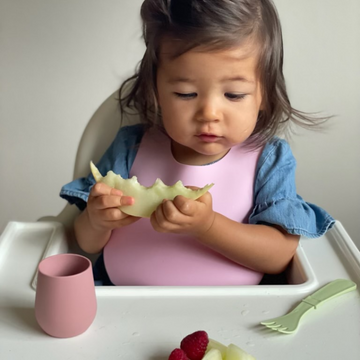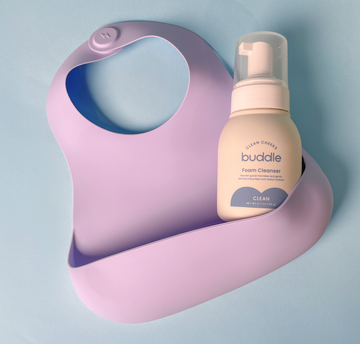As a dietitian and mom of two, I know the journey of starting solids with your baby can be both exciting and a bit overwhelming. It’s another “thing” to add to your list. You want to make the best choices for your little one, but with all the information out there– it can be hard to know what’s truly right for your family.
Here are the most frequently asked questions I receive about starting solids. I’ll also share some practical tips to help you confidently navigate this new milestone.
When is the right time to start solids?
Most babies are ready for solids around the 6 month age mark. Up until this point, breastmilk and/or formula are sufficient to meet a baby's nutritional needs. At this point, they have typically developed the necessary motor skills to sit up (relatively unassisted) and demonstrate good trunk support. You may find them reaching for objects to bring to their mouth and showing an interest in food when you’re eating.
Checklist:
1. Baby is 6 months of age (or older) AND
2. Can sit up relatively unassisted on the floor
3. Brings toys/objects to their mouth
4. Show an interest in food
Should I Start with Purees or Baby-Led Weaning?
There are two main approaches when it comes to introducing solids to your baby:
Purees: This is the more traditional approach where you begin with smooth, single-ingredient purees and gradually move to thicker textures as your baby becomes more comfortable. This typically is parent-led which means the parent directs the spoon of food into the baby’s mouth.
Both approaches are perfectly fine! Some parents start with purees for a few days and then move toward baby-led weaning. My only caveat with purees is getting stuck on that texture for too long. Babies are capable of eating a wide-variety of textures and the more foods that are introduced early on will reduce the chances of picky eating in toddler years.
Honestly, the options are endless! There is actually no “right” or “wrong” food to start with. If going the BLW (baby-led weaning) route, some of my favorite first foods include: avocado, banana, omelet, sweet potato, zucchini and yogurt. Some might say to start with iron-fortified infant cereal but that’s totally not necessary and can be skipped entirely. Modified versions of the foods you are eating are acceptable for your baby too.
As soon as you start solids with your baby, it is recommended to introduce the common allergens. These include milk, soy, wheat, egg, peanut, tree nut, fish, shellfish and sesame. The general rule of thumb for allergenic foods is EARLY and OFTEN. Once you’ve introduced an allergen, keep offering it often. Introduce allergens one at a time with no other new foods so you are able to observe any potential reactions. Most reactions will occur within two hours of ffood exposure. Some reactions may not occur until subsequent exposures. **If your baby has a history of severe eczema or a documented food allergy, be sure to consult with your pediatrician for further recommendations.






